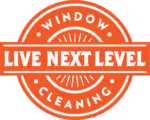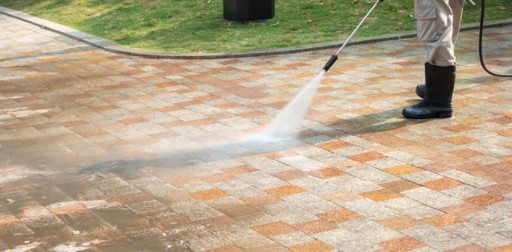Pressure washing is a useful technique for cleaning the exterior surfaces of structures and other objects. It relies on pressurized water to remove dirt and debris from surfaces.
Many homeowners choose to do their own pressure washing, while others opt for a professional service provider. This article will discuss the advantages and disadvantages of both DIY and professional pressure washing, as well as the cost comparison between them.
To get an effective clean, it is important to understand the differences between these two approaches so as to make an informed decision that best suits one’s needs. Like two sides of a coin, DIY and Professional Pressure Washing represent different approaches that have their own unique pros and cons – providing a choice that can be both enlightening and daunting at once.
Advantages of DIY Pressure Washing
DIY pressure washing offers a number of advantages, including cost-effectiveness and convenience. Cost savings are achieved by not having to hire an outside professional, as well as the ability to purchase or rent the necessary equipment at a relatively low cost.
DIY pressure washing also allows for more control over the process and reduce safety risks associated with hiring an inexperienced contractor. Additionally, DIY pressure washing reduces environmental impact by eliminating transportation costs and emissions from travel associated with bringing in a professional service provider.
When performing any task that requires power washers, it is important to adhere to safety protocols such as wearing protective gear while operating the machine and using appropriate accessories for each job. Taking these precautions ensures that no harm comes to either the operator or anyone else in proximity of the machine during operation. Additionally, ensuring proper disposal of run off water is imperative as it can contain toxic chemicals if not disposed of properly.
Efficiency can be improved when tackling large scale projects through careful planning ahead of time; this includes mapping out which areas need cleaning first and creating a timeline based on available resources like electricity and water supply. Having access to multiple machines can also help maximize efficiency while minimizing potential hazards posed by working with powerful cleaning solutions like bleach or caustic agents that require protection against inhalation and skin contact during use.
Disadvantages of DIY Pressure Washing
Undertaking home pressure cleaning without professional assistance can pose certain drawbacks, with the potential for costly consequences if caution is not exercised. One of the primary disadvantages of DIY pressure washing is that it requires knowledge and skills in order to be done safely and correctly. Without a proper understanding of how to use a pressure washer, it’s easy for an individual to damage their property or even injure themselves. Additionally, DIY pressure washing can be time-consuming and laborious, especially when tackling larger jobs such as driveways and decks.
Another disadvantage of DIY pressure washing is exposure to environmental hazards. Pressure washing using high-pressure water streams can cause pollutants like dirt, grease, oil, paint chips, and other debris to enter storm drains or groundwater systems if done improperly. Furthermore, weather conditions should also be taken into consideration when attempting DIY pressure washing projects as extreme temperatures could lead to further complications such as slips and falls due to slippery surfaces once the water evaporates.
Finally, pollution levels must always be monitored during DIY pressure washing projects as some pollutants may become airborne during the process which could cause health risks depending on the environment in which work is being conducted. A table displaying a comparison between advantages & disadvantages of DIY Pressure Washing can be found below:
| Advantages | Disadvantages |
| — | — | — |
| Cost-efficient | Requires skill & knowledge |
| Customizable results | Time consuming & laborious|
| Accessibility & convenience| Exposure to environmental hazards|
| Safety benefits (if used properly)| Pollution levels must be monitored|
Advantages of Professional Pressure Washing
Engaging professional help for pressure washing projects offers several advantages compared to attempting the task yourself.
Firstly, professional pressure washers are far more experienced than a DIYer, and will be able to complete the job with greater speed and efficiency. This can be particularly useful if the project is complex or large-scale in nature.
Moreover, professionals will have access to better quality equipment that has been designed for specific applications. This means they can reach higher levels of cleaning power with less effort and fewer chemicals, reducing both cost and environmental impact.
Professionals also come with an inherent level of safety above that of DIYers. They possess specialized knowledge on how best to approach a given project, as well as practical experience in operating their equipment safely and effectively. Furthermore, working at height carries certain risks which may not be adequately addressed without proper training; this is something that professional pressure washers should have taken courses in before undertaking any such jobs.
The peace of mind provided by having a qualified operator take on your project is yet another advantage that hiring a professional brings; knowing that all relevant safety protocols are being observed greatly reduces potential liability issues for those who engage their services.
In addition, the results produced by these specialists typically exceed those achievable by inexperienced homeowners or contractors due to their expertise in dealing with various surfaces and scenarios encountered during pressure washing tasks.
Disadvantages of Professional Pressure Washing
Despite the potential benefits of engaging professional help for pressure washing projects, there are also some drawbacks to consider.
One such drawback is the safety risks that come with operating a pressure washer. The amount of water and force coming out of the device can cause serious injury if not used carefully and correctly. Professionals must take caution when using a powerful pressure washer, as accidental contact with high-pressure jets of water can cause damage or injury to people or property.
Another disadvantage to hiring a professional for pressure washing is the environmental impact associated with their use. Pressure washers require large amounts of water which isn’t necessarily efficient in terms of conservation efforts. Additionally, they may use detergents or chemicals which could potentially pollute local ecosystems if not disposed of properly. This means that professionals should take extra precautions when considering how and where they’re going to wash, in order to minimize any adverse effects on the environment.
Professionals must weigh these potential risks against the benefits that come with engaging their services for pressure washing projects. While it’s true that there are some disadvantages associated with this type of work, many times these issues can be managed by following safety protocols and making sure that all waste is disposed of properly afterwards.
Costs of DIY vs. Professional Pressure Washing
The costs associated with DIY and professional pressure washing are an important consideration for potential customers.
Equipment costs can vary significantly depending on the type of equipment used, such as a gas or electric power washer.
Additionally, labor costs may also vary based on experience and expertise, as well as other factors such as geographical location.
Ultimately, understanding the cost difference between DIY and professional pressure washing can help customers make informed decisions about their cleaning needs.
Equipment costs
Investing in professional pressure washing equipment is often cost-prohibitive, resembling a veritable ‘black hole’ for finances. The initial investment required to purchase such equipment can include high-powered pressure washer units, hoses, nozzles and other accessories, which may quickly add up to a substantial sum.
Additionally, DIY power washers are typically less powerful than their professional counterparts and may not offer the same level of cleaning power or reliability. This could lead to safety concerns due to the increased risk of injury from an inexperienced user operating a more powerful machine.
Furthermore, the environmental impact of using high-powered machines should also be considered as certain models have been found to release pollutants into the air when operated.
Therefore, while costs may be lower for do-it-yourselfers in terms of purchasing equipment upfront, there are many factors that should be taken into consideration before jumping headfirst into DIY pressure washing projects.
Labor costs
When it comes to labor costs, DIY pressure washing projects may require more time and effort than hiring a professional service.
The amount of work involved in cleaning the exterior of a house or other structure is considerable; even for experienced do-it-yourselfers, the job can take up to several days.
In addition, there are safety concerns that must be taken into account when working with chemical detergents and high-pressure hoses.
Finally, there is an environmental impact associated with using pressurized water and chemicals that could harm local ecosystems if not used properly.
Professional services use certified technicians who have experience in safely handling all the elements of pressure washing, allowing them to complete the job quickly and efficiently while minimizing any potential environmental damage.
Although professional services come with a higher price tag than DIY projects, they often save time and money given their specialized knowledge and access to better equipment.
Conclusion
The cost of pressure washing is an important factor to consider when deciding between DIY and professional services. Professional services may be more expensive upfront, but in the long run they offer a higher quality and longer-lasting job. Ultimately, it is up to the individual to decide which service best suits their needs.
A professional service can provide peace of mind that comes with knowing a job has been done correctly and efficiently; however, for those looking to save money and take on a project themselves, DIY pressure washing can still yield satisfactory results. By weighing the pros and cons carefully, one can make an educated decision that will leave them feeling content in their choice – no matter how they end up going about it.




